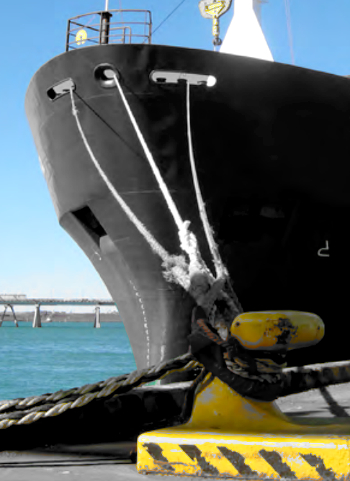Domestic fleet dwindling
 Unions, industry and defence analysts say they are concerned by Australia's shrinking merchant fleet.
Unions, industry and defence analysts say they are concerned by Australia's shrinking merchant fleet.
A 17-year-old supply contract between BHP and BlueScope Steel expires in June, which for some marks just the latest victim of an ongoing decline.
“It's becoming less and less competitive to use Australian shipping,” says Minerals Council CEO Tania Constable.
There are now just 13 large vessels in Australia, down from around 100 ships 30 years ago.
The lack of domestic competition means companies can strike a better deal with foreign-flagged ships.
Temporary licences for foreign-flagged ships to operate between domestic ports are allowed, but companies are meant to pay Australian-level wages when they do.
Unions say this does not always happen.
“In theory they should [pay Australian rates]… in reality they never do,” Paddy Crumlin, the national secretary of the Maritime Union of Australia and president of the International Transport Workers Federation, told the ABC.
“There's a technical requirement, but they have false books. They've never paid even the international rate,” he said.
The Minerals Council of Australia says it is not happening.
“There is a difference in wages, but there is not a significant difference in the wages that are paid between foreign workers on foreign vessels and Australian workers,” Ms Constable said.
Maritime Industry Australia, a shipping lobby, said companies will take the cheapest options.
“The cost differential between having a full foreign ship and having a full Australian ship is somewhere in the order of $US5 to $US7 million per annum,” Maritime Industry Australia CEO Teresa Lloyd told the ABC.
Australia’s lack of seafaring capabilities raise national security concerns for some experts.
“It gives us no flexibility at all in terms of the types of vessels we could require in strategic circumstances, defensive circumstances,” Professor Sam Bateman, a research fellow at the Australian National Centre for Ocean Resources and Security at the University of Wollongong and a former commodore in the Royal Australian Navy, told reporters.
He says that if there were more privately-owned oil tankers and cargo ships, the Australian Government would have the option to commandeer those vessels.
The ALP says it wants to create a national strategic fleet of about a dozen vessels, including oil tankers, container ships and gas carriers.
The Coalition has a bill amendment stalled in the Senate that it says will reduce existing regulatory burdens.







 Print
Print